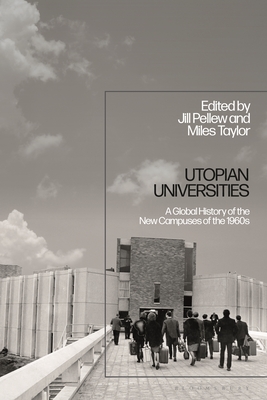

 Bloomsbury Academic
Bloomsbury Academic
Utopian Universities: A Global History of the New Campuses of the 1960s


Key Metrics
- Miles Taylor
- Bloomsbury Academic
- Hardcover
- 9781350138636
- 9.21 X 6.14 X 0.94 inches
- 1.69 pounds
- Education > Higher
- English
 Secure Transaction
Secure TransactionBook Description
In a remarkable decade of public investment in higher education, some 200 new university campuses were established worldwide between 1961 and 1970. This volume offers a comparative and connective global history of these institutions, illustrating how their establishment, intellectual output and pedagogical experimentation sheds light on the social and cultural typography of the long 1960s.
With an impressive geographic coverage - using case studies from Europe, the Americas, Africa and Asia - the book explores how these universities have influenced academic disciplines and pioneered new types of teaching, architectural design and student experience. From educational reform in West Germany to the establishment of new institutions with progressivist, interdisciplinary curricula in the Commonwealth, the illuminating case studies of this volume demonstrate how these universities shared in a common cause: the embodiment of 'utopian' ideals of living, learning and governance.
At a time when the role of higher education is fiercely debated, Utopian Universities is a timely and considered intervention that offers a wide-ranging, historical dimension to contemporary predicaments.
Author Bio
Miles Taylor is Professor of Modern History at the University of York, UK. He studied history at Queen Mary University of London, Harvard (where he was a Kennedy Scholar) and Cambridge where he took his PhD in 1989. Previously he was Director of the Institute of Historical Research in London. His recent books include Empress: Queen Victoria and India (Yale UP, 2018) and (co-ed) Utopian universities: a global history of the new campuses of the 1960s (Bloomsbury, 2020). He is currently writing a history of parliamentary representation in the UK since 1750, entitled The Sovereign People.
Source: The Ohio State University
Community reviews
Write a ReviewNo Community reviews



